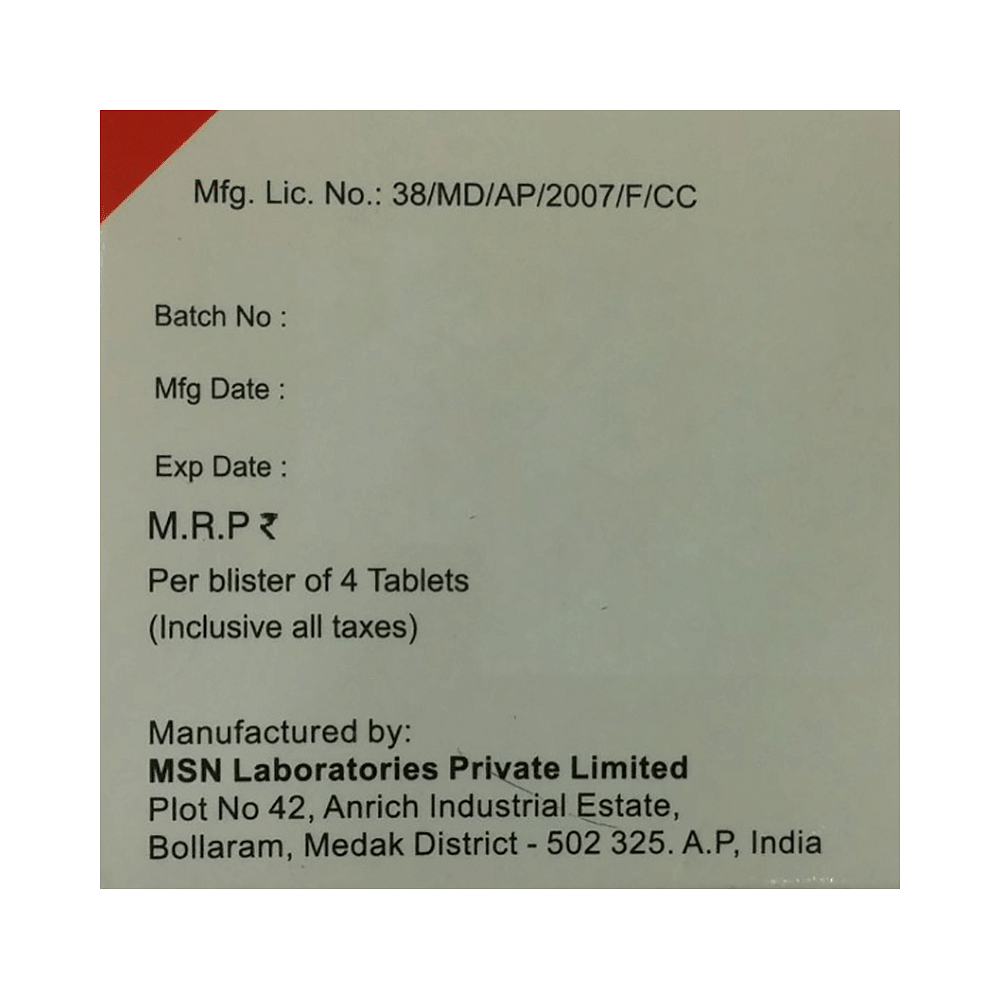
Almogril 12.5mg Tablet
Manufacturer
Lupin Ltd
Salt Composition
Almotriptan (12.5mg)
Key Information
Short Description
Almogril 12.5mg Tablet is used to treat acute attacks of migraine, relieving symptoms and preventing the attack from becoming worse.
Dosage Form
Tablet
Introduction
Almogril 12.5mg Tablet is used in the treatment of acute attacks of migraine. It relieves the symptoms of migraine and prevents the attack from becoming worse. This medicine helps by narrowing the blood vessels, thereby relieving migraine headaches.
Directions for Use
Take this medicine in the dose and duration as advised by your doctor. Swallow it as a whole. Do not chew, crush or break it. Almogril 12.5mg Tablet may be taken with or without food, but it is better to take it at a fixed time.
How it works
Migraine headaches are thought to result from the dilatation of blood vessels in the brain and the release of vasoactive and pro-inflammatory peptides (chemical messenger) from sensory nerve endings. Almogril 12.5mg Tablet is a selective serotonin receptor agonist. It works by constricting (narrowing) these blood vessels and prevents the release of the chemical messenger in the nerve endings, thereby relieving the migraine headaches.
Quick Tips
Take your medicine at the same time every day Avoid skipping doses Finish the full course of treatment Notify your doctor if you have stomach pain, headache, bloody diarrhea or worsening high blood pressure Inform your doctor if you have a history of heart disease or stroke
Related Medicines
Frequently asked questions
Is Almogril 12.5mg Tablet considered a narcotic and does it have abuse potential?
No, Almogril 12.5mg Tablet is not a narcotic and does not have abuse potential. It is an antimigraine agent that belongs to the class of selective serotonin receptor agonists.
How often can I take Almogril 12.5mg Tablet?
The maximum daily dose is two tablets within a 24-hour period, with at least a 2-hour gap between the first and second dose.
Can I take ibuprofen with Almogril 12.5mg Tablet?
Wait for Almogril 12.5mg Tablet to work (typically 2-3 hours) before considering taking NSAIDs like ibuprofen, and do not take additional triptans for relief.
Can Almogril 12.5mg Tablet be used for migraine prophylaxis or cluster headaches?
Almogril 12.5mg Tablet is intended only for the treatment of established migraines and should not be used for prevention or treating cluster headaches.
How many times can I take Almogril 12.5mg Tablet in a month?
Almogril 12.5mg Tablet is safe to use if you have four migraine episodes within a 30-day period, but its safety for more frequent use has not been established.
What should I tell my doctor before taking Almogril 12.5mg Tablet?
Inform your doctor about any heart disease risk factors (e.g., high blood pressure, diabetes, smoking, family history), mild to moderate liver disease, or severe kidney disease. Also, mention if your headache is associated with dizziness, walking difficulties, lack of coordination, or weakness in the leg and arm, as well as any medications you're taking for depression.
Does migraine run in families?
Yes, migraines may have a familial component, and they occur more frequently in women than men. Some women experience fewer migraine attacks when pregnant.



